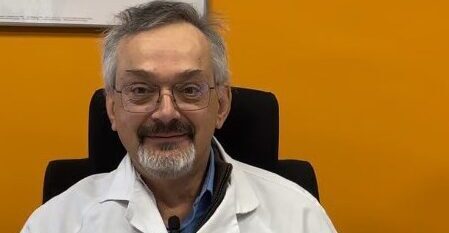Portrait Jean-Christophe Sabourin
By Aurélie Bonnaz

Jean-Christophe Sabourin is one of those people you just want to spend time with because of his passion for anatomical pathology. He is Head of the biology, pathology and physiology division at CHU Rouen (and user of Clinisys DaVinci Information Laboratory Management System).
Advancing anatomo pathology, a matter of course
Since completing his medical studies in Paris, followed by an internship in cyto- logical anatomy at Institut Gustave Roussy, and then as a university hospital assistant at Hôpital Henri Mondor, Jean-Christophe Sabourin has distinguished himself by his strong spirit for innovation. At the end of his assistant period, he decided to continue his career at the Gustave Roussy Institute in Villejuif, as he was impressed by the modern organization of the cancer center and the strong interaction between pathologists and clinicians in the committees (ancestors and precursors of the RCP). For almost 10 years, he worked as a pathologist, mainly in digestive and gynecological oncology. A brief detour to the René Huguenin Center (now merged with the Institut Curie) where he was in charge of the department… before returning to Gustave Roussy as head of unit. His interest in research and teaching prompted him to embark on a career in hospital and university medicine. It was the CHU Rouen that caught his eye – the large pathological facility, the dedicated team, and the high potential motivated him to stay… until today! And why anatomical pathology? Because it’s a medical discipline as well as a biological one. Anatomical Pathology and cytology is a medical discipline that is really about the interaction between biology and clinical practice. Pathology gives us a better understanding of disease processes, and our role in diagnosis is crucial to ensuring patients receive the right treatment. The pathologist is truly at the heart of precision medicine.
Molecular pathology, his field of choice
Convinced of the applicative benefits and medical contributions of molecular biology to the whole field of anatomical pathology, he was essential to him to establish an EPU (Postgraduate education) in molecular pathology. He started this in 2010. Since then, it has become the Postgraduate in “decision medicine, precision medicine”, and is attended by around twenty participants every year, eager to enrich their practices.
Not to be forgotten is his commitment at national level as President of the Conseil National Professionnel des Pathologistes (CNPath) and at European level as a member of the Council of the European Society of Pathology (ESP). In addition to his role as head of the polyclinic at Rouen University Hospital, he is keen to strengthen his presence at European level: interaction with his European colleagues is a passion for him, and is shaping the future of the profession.
Towards the perfect image?
Jean-Christophe Sabourin was one of the first people in France to recognize the advantages of digitizing slides. He recalls that “pathology was a very manual process for a long time, which led to quite different practices in different laboratories. There wasn’t enough standardization. However, we need to achieve standardization to ensure reproducible results. Immunohistochemistry is crucial, as is molecular pathology. For digital pathology, having a perfect, reproducible staining technique is a must.”
Towards a more automated discipline
The Rouen University Hospital was one of the first two laboratories to use Sakura’s Autotec automated coating system more than 10 years ago. In summer 2023, a SmartConnect robot joined the team, relieving employees of repetitive tasks so they can focus on higher value-added work. The future? Sabourin is already considering an automatic blade cutting system – if the returns improve.
Passing on and supporting: the fundamentals
The establishment of the EPU in Molecular Pathology, his participation in the university degree in Molecular Pathology, his primary function as University Professor in Pathology, his positions as Head of Department, (former) President of the Société Française de Pathologie and of Carrefour Pathologie (the national congress of Anatomical pathology), thesis supervisor, researcher, and his role as head of a team of 70 people demonstrates Sabourin’s desire to communicate, support, and share. He is approachable to his colleagues and employees; people ask him for help, invite him to events, ask him questions, get in touch, and he is there.
Teaching pathology in the 1st cycle of medical school, he introduces students to histology and pathology, then helps more experienced students to understand the importance of pathology.
Another big topic for Sabourin is how to engage his teams when he is passionate about innovation. The decision to automate the university hospital’s technical departments is also changing the daily work of the teams, especially the technicians. Together with the department’s health manager, he has launched a real change initiative to embrace the new tools, rethink the team’s daily work routine and take on higher value-added work or new tasks – in a context where the number of cases is constantly increasing.
Attractiveness of anatomical pathology
The modernization of pathology also creates attractiveness for young people, which on the one hand has a positive effect on the number of assistant doctors in pathology and on the other hand supports work on state-of-the-art equipment (automation). But it also has an impact on the attractiveness of France for doctors from abroad – a topic that has piqued his interest, as he is chairman of the national commission that examines applications from foreign doctors (16 positions for pathologists were advertised in France in 2024).